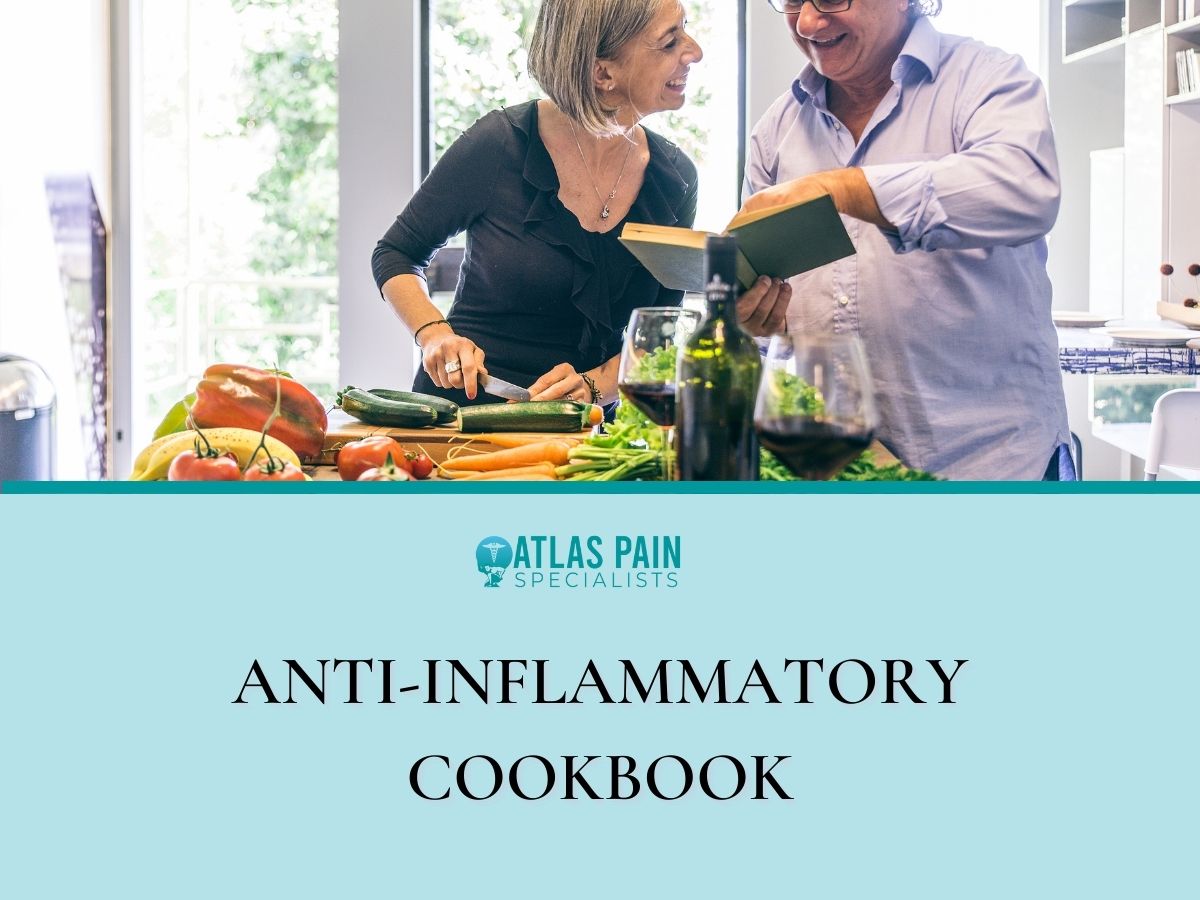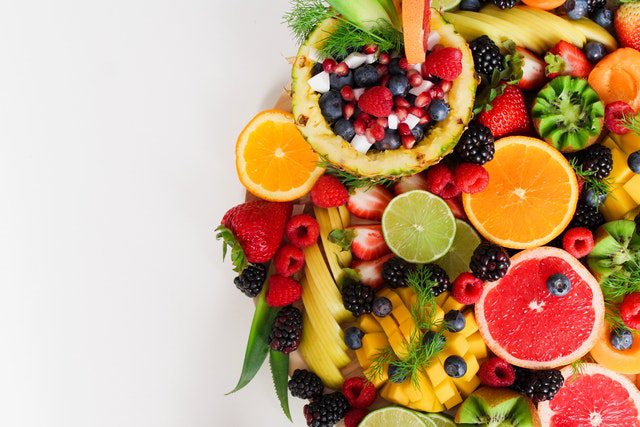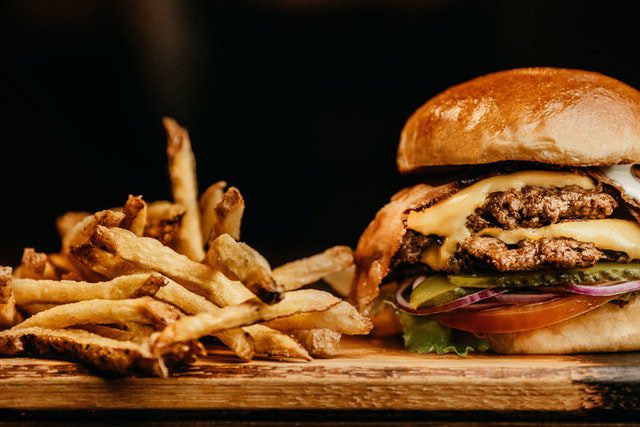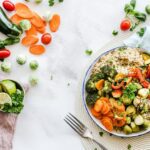

Anti-Inflammatory Cookbook
Food is the body's source of fuel. Without food, major functions in the body cease as food facilitates the availability of energy for the body to perform these functions.
Inflammation is the body's natural immune response to things that may harm it. It can be a good thing when fighting off disease-causing micro-organisms when one is sick or injured.
Chronic inflammation is, however, linked to increased risks of diseases like heart disease, obesity, and diabetes. There are foods that trigger inflammation that becomes chronic with continued intake.
It is therefore important to mind what we eat in order to avoid triggering an inflammation. This is easily achieved by using an anti-inflammatory cookbook.
The anti-inflammatory cookbook
There are many suggestive interventions to diet changes for better health out there. To have significant differences, it is necessary to have a long-term focus on eating habits instead of expecting an outcome after a few weeks.
Once someone has chronic inflammation, there is no specific food that will cure it unless they adapt to an anti-inflammatory diet and lifestyle. This also involves changing the eating patterns when there is a low risk of inflammation.
The benefits of an anti-inflammatory cookbook
The cookbook aims at including a variety of foods to give you a wide range of recipes. It minimizes processed foods and eradicates fast foods. It includes an abundance of fruits and vegetables, and the cooked foods are taken fresh.
Samples of anti-inflammatory cookbooks
- The Best Anti-Inflammatory Cookbook 2021
The benefits of an anti-inflammatory diet
Anti-inflammatory foods have little or no effect on gut bacteria which are beneficial to the body. Maintaining this diet decreases the risk for diseases such as Inflammatory Bowel Disease (IBD) and other gut-related diseases.
A good diet is also important for good sleep, which directly affects the daily state of mind. Good sleep is important for focus, memory, and concentration.
Some foods in an anti-inflammatory diet found in anti-inflammatory cookbooks include:
- Fruits and vegetables

Eating green, blue, purple, red, orange, yellow, and white fruits and vegetables is an easy approach to including anti-inflammatory components in your diet.
Fruits like blueberries are low in sugar and high in antioxidants and anti-inflammatory qualities; they are an excellent pantry staple. Quercetin, a cancer-fighting compound, is also found in the fruit.
Fruits and vegetables contain phytochemicals, which have anti-inflammatory benefits.
Most yellow, red, orange and green fruits and vegetables are high in vitamin C. High vitamin C levels reduce the risk of metabolic syndrome and heart disease.
Citrus, berries, pomegranate, and cruciferous vegetables like cauliflower, cabbage, and broccoli may be anti-inflammatory. These have antioxidant pigments like anthocyanins and carotenoids.
Antioxidants are in abundance in broccoli, including significant amounts of Vitamins K and C. Magnesium and potassium are also included in high concentrations for your benefit.
Adding dark leafy greens to your diet can help reduce inflammation in the body. They're packed with antioxidants and vitamins E, which can assist the body's ill cells to get back to health.
- Fermented foods
Beneficial bacteria that live in your large intestine, known as probiotics, help maintain a healthy digestive system. They can influence your immune system and assist in managing inflammation.
- Beverages
It is possible that the anti-inflammatory properties of coffee, green tea, and black tea are due to the presence of antioxidants and phytochemicals in them.
4. Fats and oils
Healthy omega-3 fats in it have been shown to benefit the heart, mood, and cognitive function.
Because your body cannot produce omega-3 fatty acids on its own, you must rely on foods like fatty fish, walnuts, and flax seeds to meet your needs.
A variety of anti-inflammatory substances found in healthy fats and oils suggest that they may help enhance your health in general. Anti-inflammatory oleic acid, for example, can be found in olive oil.
Similarly, oleic acid and other comparable fatty acids are present in avocado oil as well. Saturated lauric acid in coconut oil, on the other hand, may have anti-inflammatory properties when used in place of other oils.
- Protein sources
Meat, fish, eggs, legumes, nuts, seeds, and soy products are all good sources of protein.
Anti-inflammatory and antioxidant properties may be provided by the beneficial bacteria found in fermented soy products.
The anti-inflammatory properties of several of these foods make it a smart idea to incorporate them into your diet at every meal.
- Whole grains
Minimally processed grains are rich in fiber and carbohydrates. They also have anti-inflammatory phytochemicals and include oats, rice, and whole wheat.
As a prebiotic, fiber serves as nourishment for the good bacteria in your stomach. Short-chain fatty acids (SCFAs) are produced during the metabolism of prebiotics that may help reduce inflammation.
Turmeric
Turmeric contains curcumin which gives it its anti-inflammatory properties. It, however, has poor bioavailability, and this can be overcome by taking it with a source of fat such as avocado.
These foods are the bulk of the diet and a good anti-inflammatory cookbook has them in one recipe or another.
Some foods that cause inflammation

Pro-inflammatory foods are foods that can alter the body significantly to trigger an immune response. This includes all processed foods, which can alter the bacteria in the gut to trigger inflammation.
Any food that you can't make at home is pro-inflammatory due to added ingredients. If you can't pronounce some of the ingredients, then the food can cause inflammation.
Some of them include:
- Refined seed oils
It's also a good idea to steer clear of processed seed oils like soybean or maize oil. They can become unstable when heated, which could lead to the creation of hazardous substances that could exacerbate inflammation.
They are some of the most often used oils in the food industry and in food establishments.
Fast food, desserts, chips, and added sugars can be avoided by eating less processed food and avoiding deep-fried foods to cut down on the amount of the ingested refined seed oils.
- Added sugars
These sugars don't come from the meal itself but are added to make it sweeter or alter its taste. Foods such as dried fruits and pastries, as well as ketchup and spaghetti sauce, contain them in large quantities.
For natural sugars, you can take fresh fruit and limit the intake of sugary foods and beverages, such as soda, ice cream, and baked goods.
Added sugars trigger an inflammatory response that may take a toll on the liver due to an increase in the stress hormone cortisol.
- Highly processed foods
Many processed foods are made from refined grains and sugars, as well as artificial ingredients, and they have excessive calorie, fat, and salt or sugar content.
They're simple to overeat as they are made sweet. One can actually get addicted to them.
Inflammation-mediated illnesses such as heart disease can be exacerbated by a diet high in ultra-processed foods, so consuming too many of these is not recommended.
Foods in an anti-inflammatory cookbook are actually good as part of a regular diet. They are tasty and shouldn't be given the impression of non-tasty foods.
Components of an anti-inflammatory cookbook

Chronic inflammation occurs as a result of persistent acute inflammation, which occurs due to the body's immune response to a trigger. Pro-inflammatory foods trigger inflammation which may damage the body and cause illnesses when the response doesn't serve a purpose.
Learning how specific foods on dietary choices influence inflammation is important in leading a healthy lifestyle. The best strategy for naturally containing sensitivity to inflammation or chronic inflammation is being knowledgeable on and maintaining a healthy anti-inflammatory diet.
As much as it sounds like a weight-loss or medical diet, it is an eating plan aimed at providing steady energy and necessary vitamins, dietary fiber, essential fatty acids, and minerals to the body without compromising its well-being. Plus, these foods are actually pretty good.
An anti-inflammatory cookbook has some the following components as part of the anti-inflammatory diet:
- Caloric intake
Adults typically need between 2,000 and 3,000 calories daily to maintain a healthy weight. Consuming fewer calories is especially important for women and those who are smaller and less active.
In general, men's caloric requirements are higher than those of women's but increase for those who are physically active such as sportspeople.
Your weight should not change much if you are eating the right number of calories for your level of activity.
- Proteins
Protein has to range between 80 and 120 grams per day for a 2,000-calorie diet. If you have liver or kidney illness, allergies, or autoimmune disease, you should limit your protein intake.
Cut back on your intake of animal protein except for fish and increase your intake of plant-based protein, particularly that found in beans.
Explore the wide variety of whole-soy foods on the market and choose ones that you enjoy.
- Fat
600 calories can come from fat in a 2,000-calorie-a-day diet, which equates to 67 grams. Saturated, monounsaturated, and polyunsaturated fats should be distributed in a 1:2:1 ratio. Avoid all items containing margarine, vegetable shortening, and any other goods that include them.
All items containing partly hydrogenated oils should be avoided at all costs.
Avocados and nuts, including nut butter prepared from these nuts, should be a part of your daily diet.
- Fiber
Make an effort to consume at least 40 grams of fiber each day. You can do this by increasing your intake of fruit, vegetables, and whole grains.
It's important to read the labels on ready-made cereals to see if they include at least 4 grams of bran per one-ounce serving.
- Carbohydrates
Adult women should consume between 160 and 200 grams of carbs per day, while the carbohydrate intake for men should range from 240 to 300 grams per day on a 2,000-calorie-a-day diet. Foods that are less refined, less processed, and have a low glycemic load should make up the majority of this intake.
Reduce your intake of wheat- and sugar-based products, such as bread and the majority of packaged snacks. Make a conscious effort to increase your intake of whole grains like brown rice, which include the grain whole or in large chunks.
They are better than whole wheat flour products, which have a glycemic index that is nearly the same as that of white flour.
Products containing high fructose corn syrup should be avoided.
- Vitamins and Minerals
Eating a lot of fresh fruits and vegetables is the greatest method to get all of your daily vitamin, mineral, and micronutrient requirements met. The recommended daily dose of vitamin C is 200 milligrams.
The antioxidant vitamin E supplementation should be limited to between 100 and 200 IU per day for most people.
- 100-200 micrograms of selenium per day is a good starting point.
- 10,000-15,000 IU daily of mixed carotenoids.
- A daily multivitamin/multimineral supplement is the most practical way to get antioxidants.
Calcium supplements should be avoided by men and those with iron and preformed vitamin A.
- Water
Be sure to stay hydrated throughout the day by drinking water or beverages that are primarily water (tea or extremely diluted fruit juice). The water should be clean and fit for consumption.
If the taste of chlorine or other toxins in your tap water bothers you, or if you live in an area where the water is known or suspected to be contaminated, go for bottled water or a home water filter.
Frequently asked questions
What are some tips for an anti-inflammatory cookbook?

There are minimal ways and changes you can make to your diet in order to have a healthy meal.
Use onion and garlic in your cooking.
You may easily incorporate these vegetables into a variety of lunch or dinner preparations as they serve as a flavor enhancer and because of their high concentration of anti-inflammatory compounds.
Make your own salad dressings.
You may prepare your own tasty dressings and marinades that are packed with anti-inflammatory components by combining herbs, spices, and vinegar.
Keep it simple.
There is no need to make completely new recipes every night. The same nutrients or benefits come from any other foods of the same category.
There is no harm in taking a small range of recipes that are less complicated than the others.
About Dr. Sean Ormond



